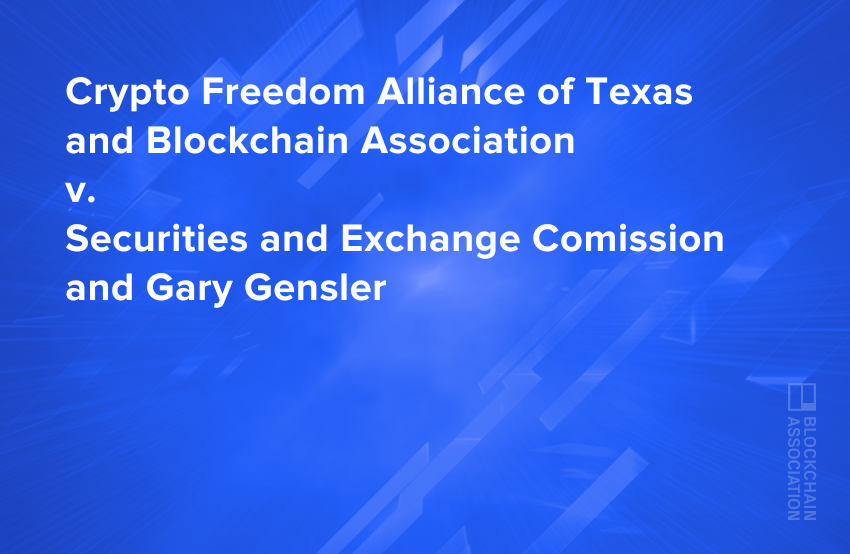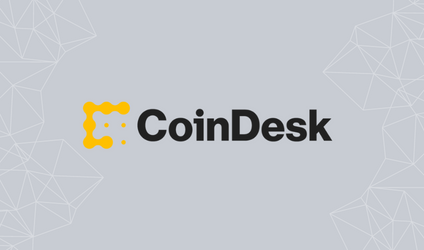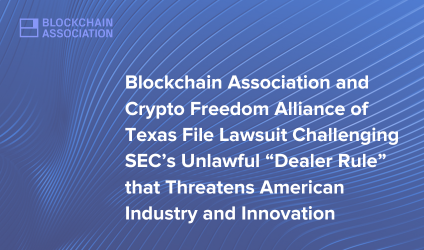The U.S. Securities and Exchange Commission’s (SEC) recently finalized Dealer Rule strays dramatically from the long-standing and well-settled meaning of the term originally established as part of the Securities Exchange Act of 1934. In our view, this unlawful expansion stands to cause irreparable damage to the tens of millions of American consumers and businesses participating in digital asset trading.
To stop the SEC’s continued attacks against our industry, we and our co-plaintiff have sued the agency to overturn this radical expansion of SEC authority that we believe poses a serious threat to the digital asset industry and future of American innovation.






